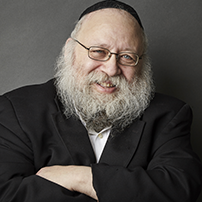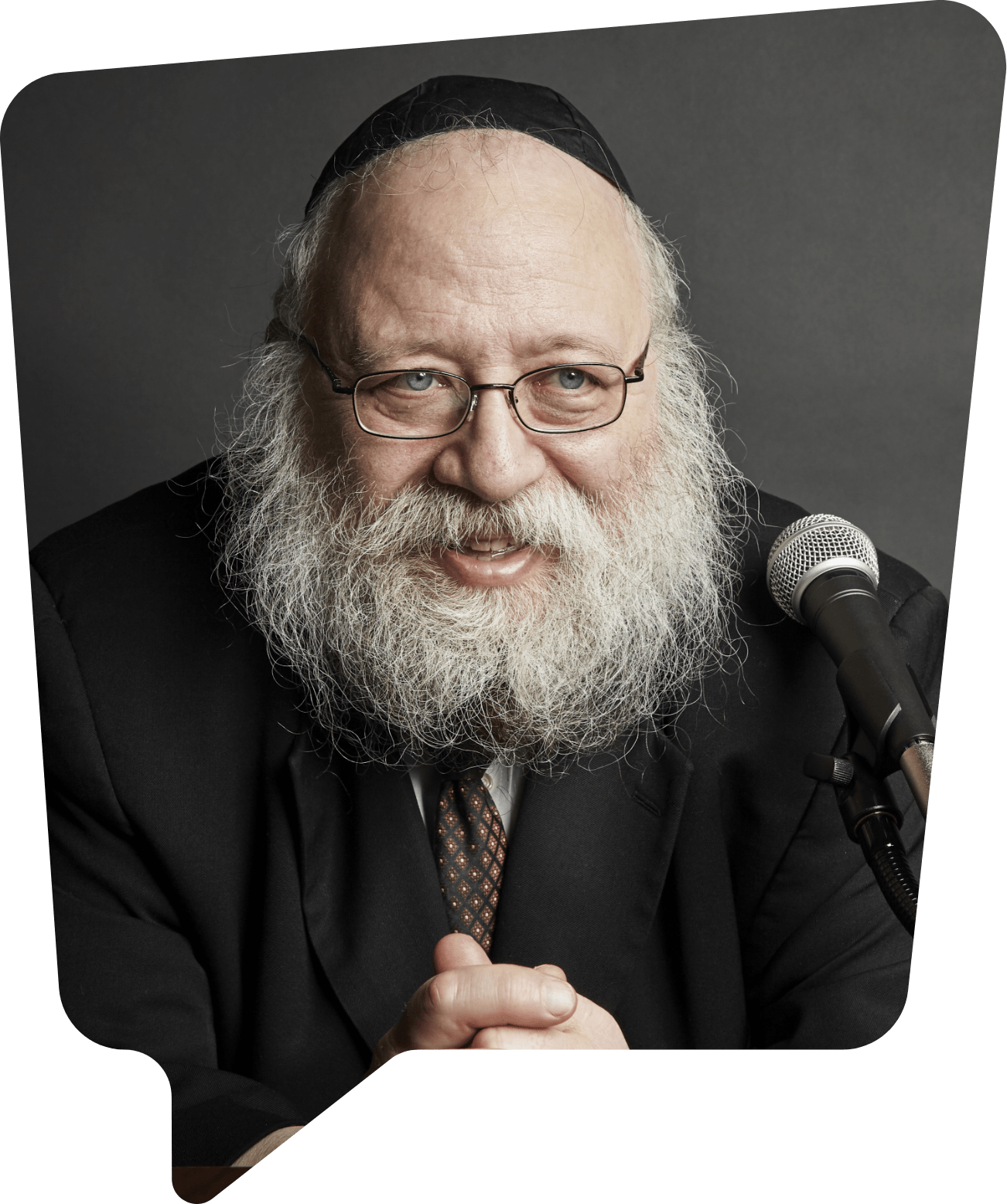
With the explosion of scientific discoveries in all fields, particularly in the medical sphere, in recent times, it behooves us as Jews to reflect on the significance of these discoveries in a Jewish context. Our Sages of the Kabbalah and Chassidic thought have described these explosions of knowledge as portents of the imminent Era of Redemption that will be characterized by the utter opening of all the secrets of G-d and nature. The Era of redemption is also the Era of ultimate Healing and physical and spiritual health.
If medical discoveries are features of G-dly revelation, we can appreciate that Torah, G-d’s authoritative word, and the Jewish people, G-d’s Chosen nation, have something weighty to offer to the progress of medicine.
When most people think of Jewish contributions to medicine they either think of the high medical costs they pay to Jewish physicians, or, more seriously, they think of people like Jonas Salk and other Jewish medical pioneers. Others might invoke the obsession Judaism has with hygiene that is tangential to observances such as kashrut, Mikveh, circumcision, washing hands before eating etc.
The truth is that Judaism can lay claim to a much more significant contribution to progress in the medical field than either the accomplishments of Jewish medical savants such as Salk or the beneficial by-products of Jewish observances.
Our sages tell us that the prayer for good health is the eighth segment of the “Eighteen Benediction (Shemonah Esrei)” liturgy. Jews recite thrice daily. Why number eight, the Talmud asks? Because circumcision, a medical procedure, occurs on the eighth day, the Talmud answers.
There is a profound message in the association of medicine with circumcision and the number eight. Eight is the number that connotes transcending the natural order of things, represented by the number seven, the number of days of the week, reflecting the Biblical cycle of creation. When there is an imbalance of nature, one must go to a force that transcends the natural order to heal that imbalance. Moreover, nature, by definition is inherently imperfect and is subject to the law of entropy. To overcome the natural propensity of nature to disintegrate, one must access the above-nature Divine energy that G-d also invested within this world.
Interestingly, the word for sick in Hebrew “choleh” numerically adds up to 49 (7×7), which symbolizes that natural forces, by definition, are prone to deterioration and degeneration. One must therefore access the number eight, the force of transcendence. The healing process, thus, is a Divine process that G-d invested into nature to help cope with the entropy oriented condition of natural existence. In this context, Judaism views medicine not as a contravention of G-d, but an affirmation of G-d’s ability to endow nature with the qualities that are inherently above the limitations of the natural order.
And this leads us to the first of the eight contributions of Judaism to medicine (an eight letter word!) that is alluded to in the “M” of the word medicine: the “Middle-of-the-Road” approach to the concept of man attempting to alter nature, Judaism has adopted. One prevalent extreme position repudiated by Judaism is the view that medical intervention is blasphemous because it purports to change that which G-d had caused. The other extreme, just as objectionable by Judaism’s standards, is the denial of G-d’s role in the entire healing process, claiming that only science can discover the answers to our medical woes. Judaism considers both positions erroneous, theologically untenable, and injurious to our physical and spiritual health. Both extremes deny G-d’s unity. True, only G-d can heal; but G-d heals through His creations that include the physician, the medications and the technological know-how, all of which are G-d’s handiwork. To believe in medical treatment and the scientific process as G-d’s means of healing, is an affirmation that everything in creation is nothing but an extension of G-d’s unity.
But, Judaism also contributed the “E” of medicine, the empirical approach. Judaism, with its obsession for action, and that action validates the good and noble thoughts, cultivated an attitude that theories, no matter how logical and compelling they sound, can be false. Conversely, ideas that may seem irrational should be adopted if they work. Maimonides (1135, 1204) actually demonstrated this empirical bent in his medical writings where he generally followed in the Greco-Roman tradition of Hippocrates and Galen, but deviates often enough from their prescriptions that they considered logical, when they didn’t work in the laboratory of life. Conversely, Maimonides incorporated superstitious remedies, discarded by the medical establishment because of their irrationality, because he tested them and they worked.
“D” stands for the disproportionate number of doctors and other medical practitioners that the Jewish community has contributed. According to a medical historian, there were more Jewish doctors up until modern times than all other doctors combined! The reason for this phenomenon lies in the Jewish religion’s positive assessment of the medical profession and views the medical practitioner as an instrument of G-d, in whose hands He has entrusted life and death.
“I” stands for the spirit of inquiry Jewish tradition has engendered and the investigatory techniques Jewish scholarship has provided. No progress in science can be made without the ability to probe, question, analyze and be prepared for new discoveries that can revolutionize the way we look at the subject. The Talmud and its commentaries are the most powerful sources of such inquiry that has carried over into the sphere of science and medicine.
The “C” represents the obsession Jews have with compassion for others and the conscientiousness with which they execute their passion for helping others. Indeed, at the forefront of most movements for social change one can find Jewish people, who might not express their Jewishness in any other way. The last Jewish trait to fall to the wayside is the penchant for kindness to and concern for others. This concern has certainly helped in furthering the aims of the Medical community.
The second “I” of the word medicine stands for the inestimable value of life and the indivisible character of life. Despite the erosion of this value in modern life with the cliché that it is the quality of life that is most important, Judaism unwaveringly declares life itself to possess the greatest quality; any and every component of life is imbued with infinite value and meaning.
The letter “N” stands for the natural approach to healing. And natural does not necessarily mean to negate synthetic drugs or invasive surgical procedures, but to underscore the importance of preventative measures to secure optimum health. As Maimonides, after prescribing a health regimen, declares that one who follows his prescription, he guarantees will never become ill. Living a healthful life is the best cure in the spirit of the Biblical phrase: ”All the illness that I visited upon the Egyptians I will not visit upon you, because I am G-d your Healer.”
The second “E” of medicine and its final letter represents Judaism’s concept of treating the entirety of the human being; an approach that we refer to as “holistic” medicine. Judaism, especially as expounded by Maimonides, demands that we treat the entire human being, who consists of one whole body, not just a conglomeration of limbs; emotions and intellect. But, above all, the Jewish holistic approach demands that we also treat the soul and the spiritual needs of the individual. The entirety concept also extends to one’s environment. It does not suffice to treat a sick individual without providing him/her with a healthy environment for both his/her soul and body.
These eight perspectives that were inspired by thousands of years of Jewish life and scholarship have influenced – directly or indirectly – the attitudes of the medical and scientific communities, and have brought us perhaps as close as we can get to conquering illness, that will serve as a prelude to the time when G-d, the ultimate Healer, will crown all of our efforts at eradicating sickness with complete success – in the Messianic Age.


